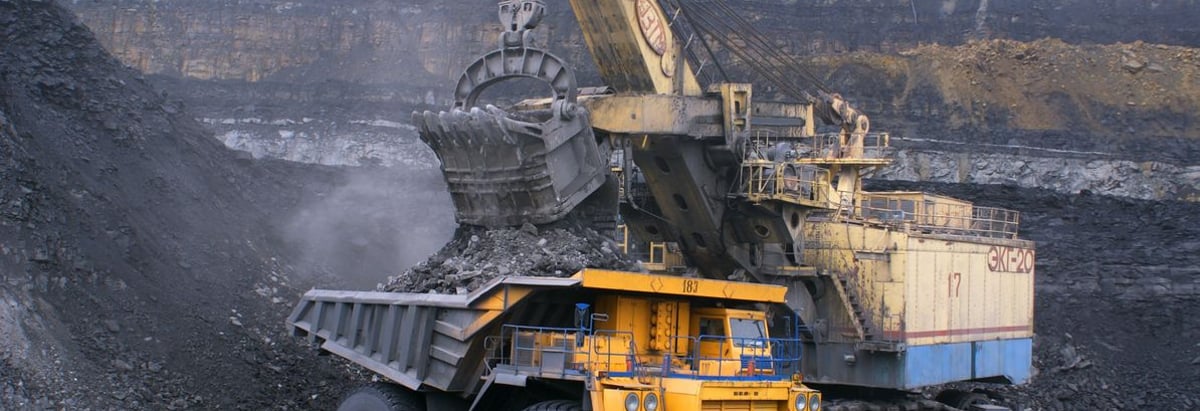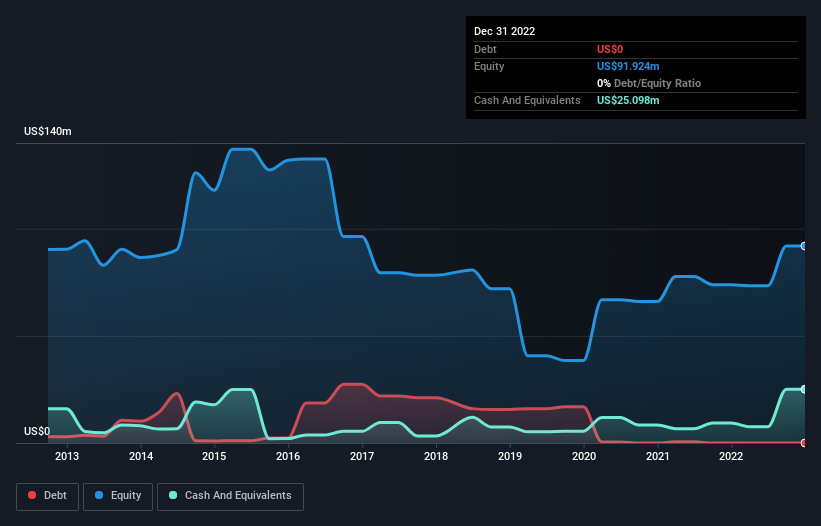- Australia
- /
- Oil and Gas
- /
- ASX:PEN
Here's Why We're Not At All Concerned With Peninsula Energy's (ASX:PEN) Cash Burn Situation

Just because a business does not make any money, does not mean that the stock will go down. For example, although Amazon.com made losses for many years after listing, if you had bought and held the shares since 1999, you would have made a fortune. Having said that, unprofitable companies are risky because they could potentially burn through all their cash and become distressed.
Given this risk, we thought we'd take a look at whether Peninsula Energy (ASX:PEN) shareholders should be worried about its cash burn. For the purposes of this article, cash burn is the annual rate at which an unprofitable company spends cash to fund its growth; its negative free cash flow. Let's start with an examination of the business' cash, relative to its cash burn.
See our latest analysis for Peninsula Energy
Does Peninsula Energy Have A Long Cash Runway?
You can calculate a company's cash runway by dividing the amount of cash it has by the rate at which it is spending that cash. In December 2022, Peninsula Energy had US$25m in cash, and was debt-free. Looking at the last year, the company burnt through US$5.5m. So it had a cash runway of about 4.6 years from December 2022. A runway of this length affords the company the time and space it needs to develop the business. You can see how its cash balance has changed over time in the image below.

How Well Is Peninsula Energy Growing?
We reckon the fact that Peninsula Energy managed to shrink its cash burn by 50% over the last year is rather encouraging. And considering that its operating revenue gained 31% during that period, that's great to see. We think it is growing rather well, upon reflection. Clearly, however, the crucial factor is whether the company will grow its business going forward. For that reason, it makes a lot of sense to take a look at our analyst forecasts for the company.
Can Peninsula Energy Raise More Cash Easily?
While Peninsula Energy seems to be in a decent position, we reckon it is still worth thinking about how easily it could raise more cash, if that proved desirable. Companies can raise capital through either debt or equity. Commonly, a business will sell new shares in itself to raise cash and drive growth. By comparing a company's annual cash burn to its total market capitalisation, we can estimate roughly how many shares it would have to issue in order to run the company for another year (at the same burn rate).
Peninsula Energy's cash burn of US$5.5m is about 6.6% of its US$83m market capitalisation. That's a low proportion, so we figure the company would be able to raise more cash to fund growth, with a little dilution, or even to simply borrow some money.
So, Should We Worry About Peninsula Energy's Cash Burn?
As you can probably tell by now, we're not too worried about Peninsula Energy's cash burn. For example, we think its cash runway suggests that the company is on a good path. But it's fair to say that its cash burn reduction was also very reassuring. After taking into account the various metrics mentioned in this report, we're pretty comfortable with how the company is spending its cash, as it seems on track to meet its needs over the medium term. Readers need to have a sound understanding of business risks before investing in a stock, and we've spotted 3 warning signs for Peninsula Energy that potential shareholders should take into account before putting money into a stock.
If you would prefer to check out another company with better fundamentals, then do not miss this free list of interesting companies, that have HIGH return on equity and low debt or this list of stocks which are all forecast to grow.
New: Manage All Your Stock Portfolios in One Place
We've created the ultimate portfolio companion for stock investors, and it's free.
• Connect an unlimited number of Portfolios and see your total in one currency
• Be alerted to new Warning Signs or Risks via email or mobile
• Track the Fair Value of your stocks
Have feedback on this article? Concerned about the content? Get in touch with us directly. Alternatively, email editorial-team (at) simplywallst.com.
This article by Simply Wall St is general in nature. We provide commentary based on historical data and analyst forecasts only using an unbiased methodology and our articles are not intended to be financial advice. It does not constitute a recommendation to buy or sell any stock, and does not take account of your objectives, or your financial situation. We aim to bring you long-term focused analysis driven by fundamental data. Note that our analysis may not factor in the latest price-sensitive company announcements or qualitative material. Simply Wall St has no position in any stocks mentioned.
About ASX:PEN
Peninsula Energy
Operates as a uranium exploration company in the United States.
Exceptional growth potential and good value.
Similar Companies
Market Insights
Community Narratives



